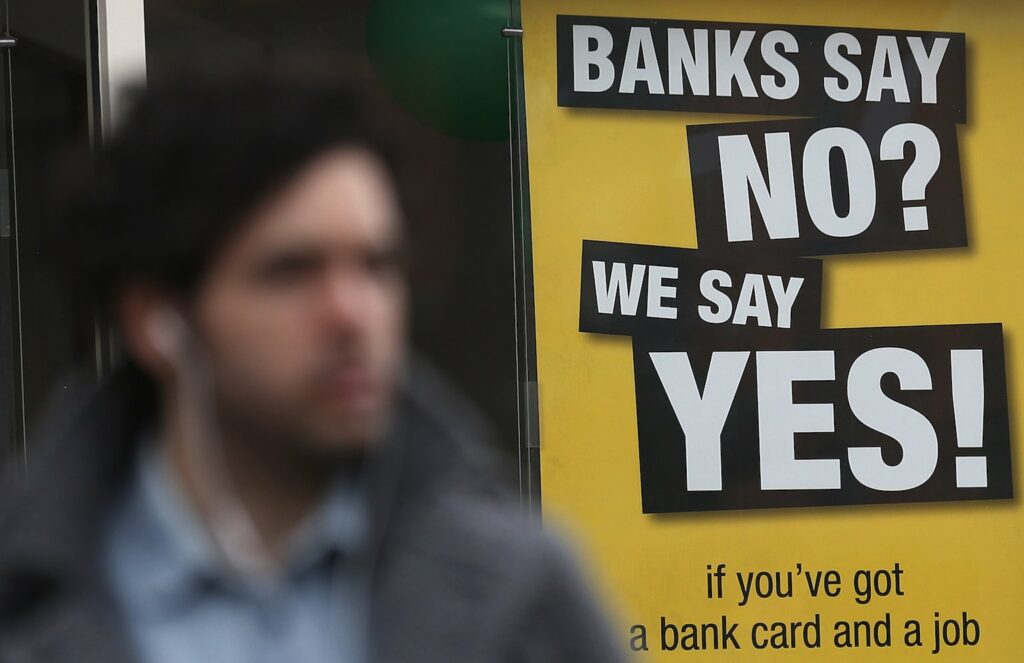Society of St. Vincent de Paul effort ‘helps friends in need’
State legislators who fought to curb the predatory practices of short-term lenders breathed a sigh of relief when the Virginia Fairness in Lending Act of 2020 (HB 789/SB 421) went into effect Jan. 1.
Yet, even with this reformative legislation, Dan Kearns, president of both the Society of St. Vincent de Paul (SVDP) St. Michael the Archangel Conference and the SVDP Richmond District Council, believes borrowing from short-term lenders is still not a good idea for the financially vulnerable served by the Society.
Kearns has been working to establish a viable option that protects the society’s “friends in need” who must borrow to rectify untenable situations — a reality only exacerbated by the pandemic. His discomfort in seeing the payday loan and car title loan storefronts peppering the streets of Richmond made him begin to think about the problem and how to rectify it.
He found a solution in a low interest loan program some SVDP conferences and council in the U.S. have adopted. A Mini-Loan Program in Dallas serves as the model for what Kearns is doing locally in collaboration with Village Bank of Midlothian.
SVDP-partnership
The program involves an SVDP partnering with a local bank to provide low-interest loans to those with sustainable employment for the purpose of either refinancing or avoiding a payday loan, paying off credit cards or consolidating credit cards, or financing an emergency/unique need, typically medically related.
Providing a low-interest loan is intended to help a borrower come out of or avoid a “debt trap” – indebtedness that spirals out of control – and make progress toward becoming credit worthy.
Roy Barzel, Village Bank’s executive vice president and chief credit officer, and Bill Foster, the bank’s former president and CEO, were touched when they first heard about the purpose of the program.
“The act of kindness and love was so moving to us,” Barzel recalled. “It is gratifying to think that you can help someone get out of a financial hole.”
How it works
Loan applicants must show sustainable income and submit a budget to be approved for a loan. An SVDP loan committee carefully screens participants, verifies income, qualifies applicants and helps them with the loan process. In the end, however, the financial relationship/arrangement is between the borrower and the bank. Village Bank makes the loan, and the St. Michael’s Conference secures it. The conference has $20,000 in collateral for program loans in a money market fund.
“The money market account is cash secured and guaranteed by St. Michael’s (Conference),” said Barzel. “The amount of hold on the fund reduces as loan payments are made.”
For the St. Michael’s Conference, a mini-loan is a loan of no more than $2,500 at 3% interest that must be repaid within 12-24 months.
The conference is limited to eight loans per year with the amount of its collateral.
“The bank doesn’t report to the credit bureau, and it doesn’t charge a fee if a payment is late,” said Barzel. “If someone pays within 30 days, St. Michael’s money market fund will not be debited; otherwise, it will.”
The account is also debited if the loan recipient defaults on the loan.
Additional support needed
As president of the Richmond Council, Kearns hopes to engender more support for the Mini-Loan Program among other conferences, believing it’s the next level of service to those in need.
He realizes, though, that it might be challenging for conferences in other localities to find partner banks. Barzel is willing to work with those in the Richmond area and would be happy to walk another bank through the process.
To expand the program in other conferences would require raising collateral and more money, but Kearns indicated that the council would help. It would also help in making inroads with the bank model.
There are seven conferences in the Richmond District Council. In addition to St. Michael, there are St. Matthew, Virginia Beach; Sacred Heart, Perry Street, Richmond; St. Bridget, Richmond (with Holy Rosary); parishes in the Charlottesville area grouped into the Holy Trinity Conference; St. Andrews, Roanoke; and Holy Spirit, Virginia Beach. Each is a standalone 501(c)(3) nonprofit made up of volunteers, known as Vincentians, who have been doing the work of the society since its founding in France by Blessed Frédéric Ozanam nearly two centuries ago.
So far, current participants in the Mini-Loan Program are happy with how it is unfolding.
Kearns is seeing steady growth in numbers at St. Michael.
“Three loans went through in 2020, and a fourth is in the pipeline, ready to go to the bank,” he said. ”Ballpark, we could be looking at another four to five loans this year and $12,000 in outstanding loans by the end of the year.”
“The program has gone as smooth as can be,” said Barzel.
Borrowers are grateful.
For one borrower, a mini-loan helped defray the cost of an expensive item needed to improve the quality of daily life.
The loan recipient, who asked to remain anonymous, said, ”This is a very good way to help people. The SVDP was so supportive during the loan process. The way they navigate through the process makes life so easy for the person struggling. They treat the SVDP-borrower relationship as a partnership, where they are helping a friend, not a client.“

